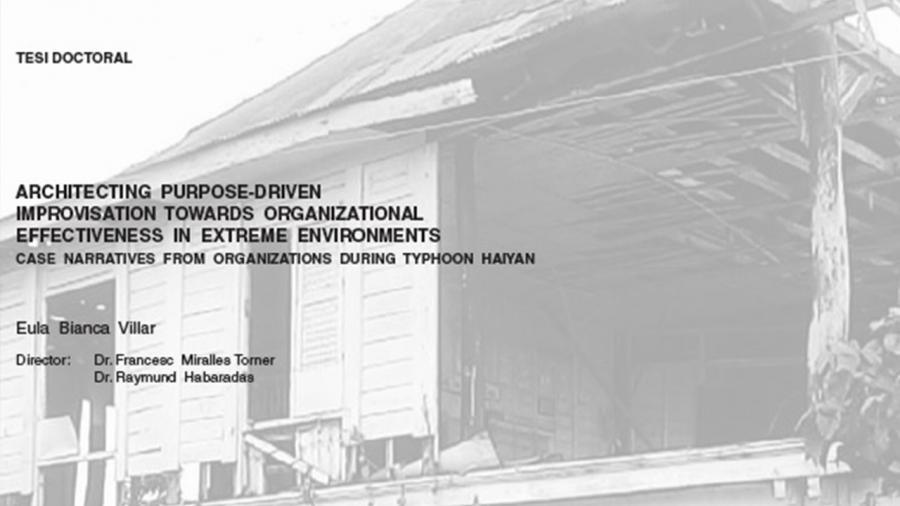Ms. Eula Bianca’s Thesis Lecture

This dissertation positions itself within the scholarly conversations on organizing processes in disaster environments. In particular, the main research inquiry is ‘how does the interaction of individual and collective level attributes among improvised actions of the organizations explain how they can realize their goals, i.e. be effective, in extreme contexts?’. Using a case strategy approach, it surfaces narratives of two profiles of organizations that were critical to the response and recovery phase of the 2013 Typhoon Haiyan. The main contribution of the work is two-fold:
First, it infers that improvisation, despite its emergent nature, is purpose-driven, as it allows organizations to consciously realize their pre-established goals. This occurs through two effects: (a) the buffering effect, and (b) the connection-seeking effect.
Second, it infers that purpose-driven improvisation is enabled by various narratives of interaction between the individual and collective level attributes. Three narratives are emergent: (a) a complementary interaction between the individual- and collective-level attributes, where both the individual and the organization play an equal role in enabling purpose-driven improvisation (b) an individually-maneuvered interaction, where the individual positionality is more pronounced in the enactment of purpose-driven improvisation, and (c) rule-abiding interaction, where the role of the organization precedes the individual positionality in the enactment of purpose-driven improvisation.
